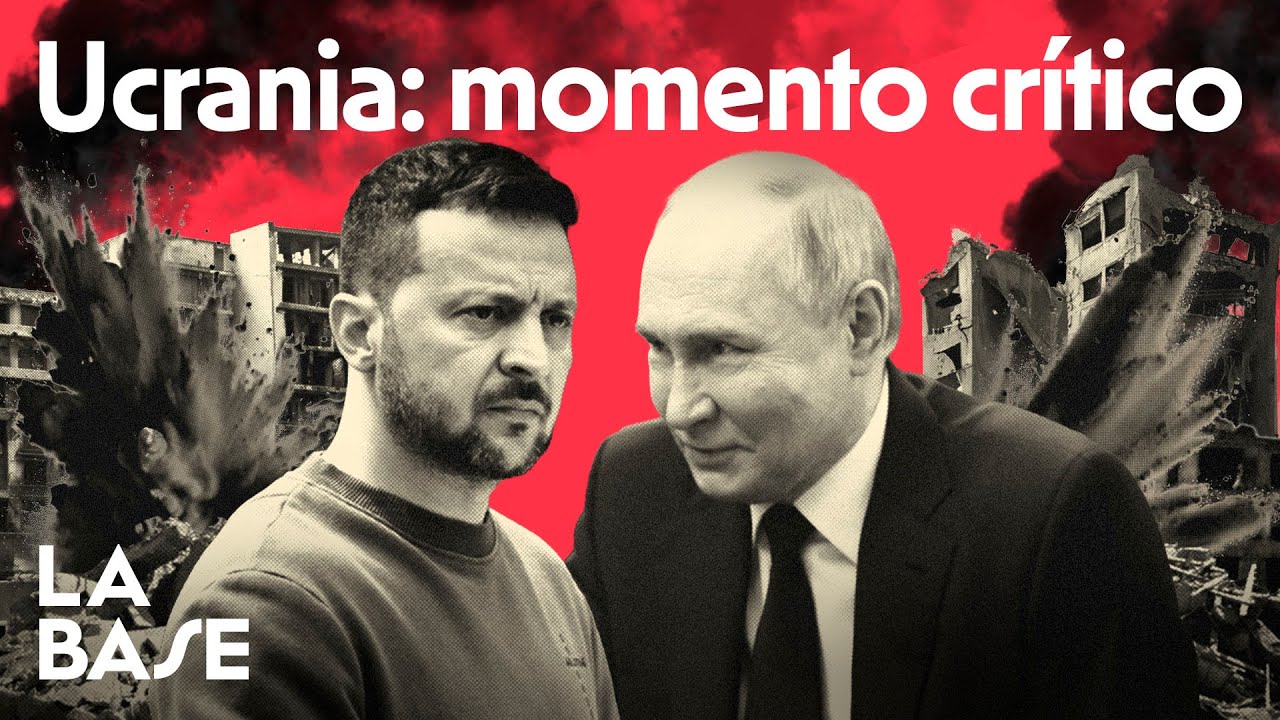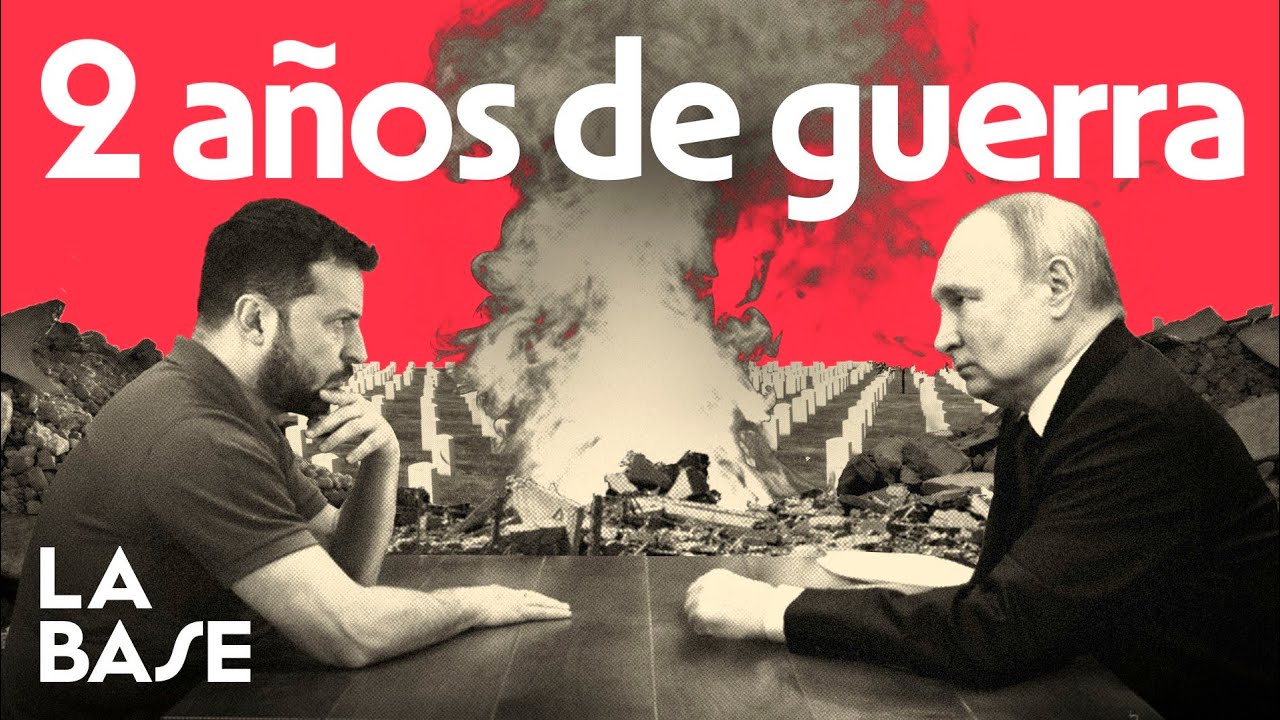Confirmation the West vetoed Ukraine peace deal
Summary
TLDREl guion del video revela una discusión sobre las negociaciones de paz entre Ucrania y Rusia, durante las cuales se sugiere que el ex primer ministro británico, Boris Johnson, intervino para evitar un acuerdo. Se menciona que Victoria Nuland, una alta funcionaria estadounidense, confirmó que hubo discusiones de paz, pero que se desistió debido a las condiciones impuestas por Rusia que limitarían la capacidad militar de Ucrania. La narrativa cuestiona las justificaciones dadas para no firmar el acuerdo y critica la postura de Estados Unidos y Reino Unido de permitir que Ucrania sea utilizada para amenazar a Rusia con sistemas de armas avanzados.
Takeaways
- 😐 La posibilidad de un acuerdo de paz entre Ucrania y Rusia se discutió durante meses, pero finalmente no se materializó debido a la intervención de figuras políticas como el ex primer ministro británico Boris Johnson.
- 🗣️ El ex primer ministro israelí Naftali Bennett y el representante ucraniano Arami confirmaron la cercanía a un acuerdo y la influencia de Johnson en la decisión de no firmar.
- 🔍 Se revela que el presidente ruso Putin tenía como principal condición la neutralidad de Ucrania y limitaciones en los sistemas de armas que podría tener este país después de un acuerdo.
- 🚫 No había restricciones similares para Rusia, lo que llevó a cuestionamientos sobre la equidad del acuerdo y a su eventual desintegración.
- 🌐 El bloqueo del acuerdo por parte de Occidente se justifica en la necesidad de preservar la capacidad de Ucrania para albergar sistemas de armas estadounidenses cerca de las fronteras rusas.
- 🗣️ Se cuestiona la narrativa propagada por medios y figuras políticas que descartan la posibilidad de un acuerdo de paz y la implicación de Estados Unidos en la prevención de dicho acuerdo.
- 🔥 La admisión de Victoria Nuland, una alta funcionaria estadounidense, refuerza la teoría de que Estados Unidos bloqueó el acuerdo por intereses estratégicos y militares.
- 🛡️ Existe un debate sobre la provisión de sistemas de armas avanzados a Ucrania, con preocupaciones sobre su mantenimiento y la estrategia detrás de su uso.
- ✈️ Se sugiere que Estados Unidos podría estar considerando la autorización de ataques de larga distancia con armas estadounidenses dentro de Rusia, lo que podría escalar la tensión y el conflicto.
- 🏛️ La neutralidad de Ucrania, un punto clave en las negociaciones, es vista como una solución viable para evitar conflictos futuros y respetar los derechos de sus ciudadanos rusohablantes.
Q & A
¿Qué confirmación se hace sobre las discusiones de paz entre Ucrania y Rusia según Victoria Nuland?
-Victoria Nuland confirma que hubo discusiones de paz cercanas a una conclusión satisfactoria, pero que no se materializaron debido a la intervención del entonces Primer Ministro británico, Boris Johnson.
¿Qué reveló el ex Primer Ministro israelí Nala Benet sobre las negociaciones de paz?
-Nala Benet afirmó que estaban cerca de un acuerdo de paz, pero que Boris Johnson intervino para evitar que los ucranianos firmaran el acuerdo.
¿Cuál fue la condición clave de Rusia en las negociaciones de paz según el guion?
-La condición clave de Rusia era que Ucrania se limitara en los tipos de sistemas de armas que podría tener después de la firma del acuerdo, lo que basicamente neutralizaría a Ucrania como fuerza militar.
¿Por qué se cuestionó el acuerdo de paz dentro y fuera de Ucrania?
-Se cuestionó el acuerdo porque no había restricciones similares para Rusia, como retirarse, tener una zona de amortiguamiento o limitaciones en su fuerza militar frente a Ucrania.
¿Qué argumentos se usaron inicialmente para justificar la negativa del acuerdo de paz?
-Inicialmente, se argumentó que la negativa se debía a las presuntas atrocidades rusas en Buca y la indignación de Ucrania por no poder hacer paz con Rusia bajo esas circunstancias.
¿Cómo respondió Zalinski a las presuntas atrocidades en Buca y su relación con la paz?
-Zalinski afirmó que, a pesar de las presuntas atrocidades, era aún más importante alcanzar la paz para prevenir más atrocidades.
¿Qué reveló la publicación de un borrador de un tratado de paz entre Ucrania y Rusia en The New York Times?
-El borrador reveló que Rusia había querido incluir una cláusula que permitiría a Rusia invadir Ucrania cuando quisiera, lo que fue utilizado como una excusa para no firmar el tratado.
¿Qué cambio se observa en la narrativa con la declaración de Victoria Nuland sobre las negociaciones de paz?
-Victoria Nuland admite que Estados Unidos bloqueó el tratado porque quería preservar el derecho de Ucrania para albergar sistemas de armas avanzadas de Estados Unidos en su territorio.
¿Qué implicaciones tiene la decisión de Estados Unidos de no permitir que Ucrania declare su neutralidad?
-La decisión de Estados Unidos de no permitir la neutralidad de Ucrania implica que se busca preservar la capacidad de Ucrania para amenazar a Rusia con sistemas de armas estadounidenses.
¿Qué pasos se siguen después de que Estados Unidos inicialmente descarta ciertas opciones militares para Ucrania?
-Después de que Estados Unidos inicialmente descarte opciones como ataques directos o municiones de clúster, se sigue un patrón donde Tony Blinken indica que están considerando esas opciones y eventualmente se autorizan.
¿Qué sugiere la declaración de Tony Blinken sobre la posibilidad de autorizar ataques de larga distancia con armas estadounidenses a Ucrania?
-La declaración de Tony Blinken sugiere que está considerando la autorización de ataques de larga distancia con armas estadounidenses a Ucrania, lo que podría ser un paso adicional en la escalada de la guerra.
Outlines

Esta sección está disponible solo para usuarios con suscripción. Por favor, mejora tu plan para acceder a esta parte.
Mejorar ahoraMindmap

Esta sección está disponible solo para usuarios con suscripción. Por favor, mejora tu plan para acceder a esta parte.
Mejorar ahoraKeywords

Esta sección está disponible solo para usuarios con suscripción. Por favor, mejora tu plan para acceder a esta parte.
Mejorar ahoraHighlights

Esta sección está disponible solo para usuarios con suscripción. Por favor, mejora tu plan para acceder a esta parte.
Mejorar ahoraTranscripts

Esta sección está disponible solo para usuarios con suscripción. Por favor, mejora tu plan para acceder a esta parte.
Mejorar ahoraVer Más Videos Relacionados

Unconditional surrender! Putin didn't even see NATO's proposal. Trump's last-minute maneuver.

La TRAMPA que TRUMP le ha querido HACER a UCRANIA @VisualPolitik

Navy Veteran On Trial For Murder | Chicago Justice | PD TV

ya NO Apoyo a Ucrania 🇺🇦 (y tú tampoco deberías)

La Base 4x139 | El ejército ruso avanza en Ucrania

La Base 4x90 | ¿Está Ucrania perdiendo la guerra?

Linea del tiempo procesos de paz en Colombia
5.0 / 5 (0 votes)